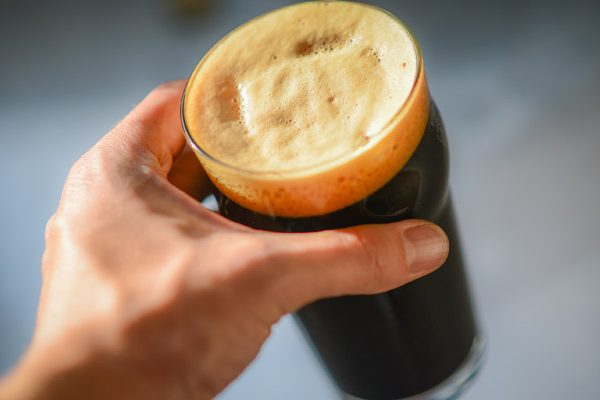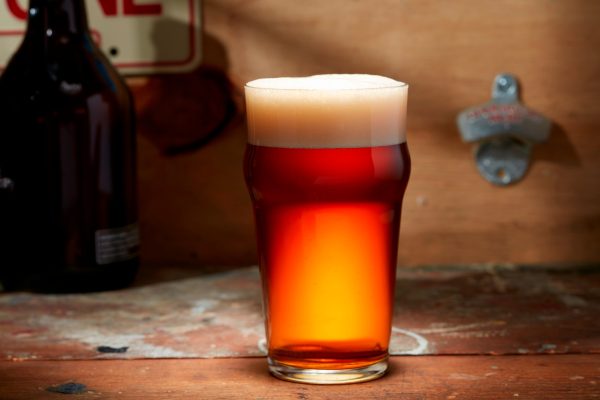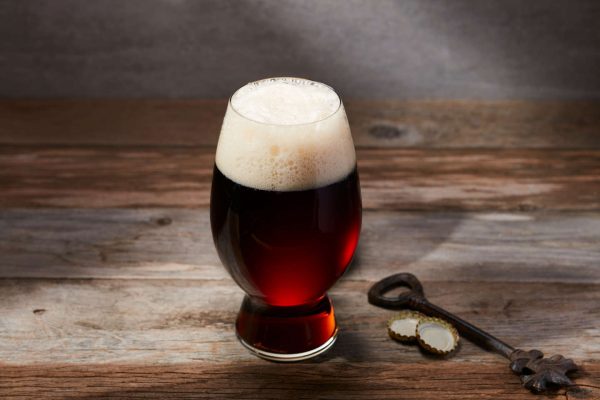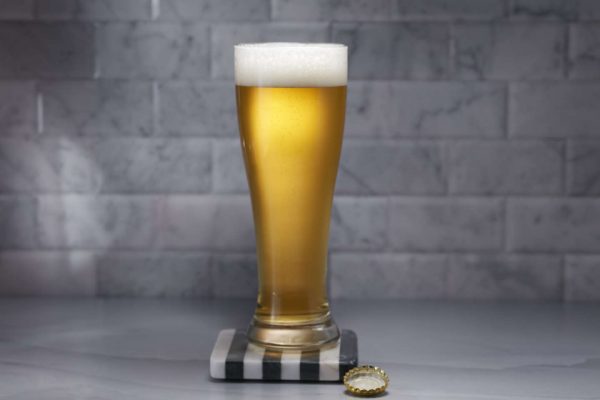
The following beer recipe is featured in the November/December 2013 issue of Zymurgy magazine. Access this issue along with the archives with Zymurgy Online!
It's about that time when we start preparing for St. Patrick's Day, so a dry stout is in order. Brewing dry stout is easy when you have the right water. Low-alkalinity water, such as distilled or reverse osmosis water, is well-suited for brewing a dry stout. Low alkalinity allows wort pH to fall into a desirable range and creates the tart, acidic flavor that is a signature of its style. This recipe is the perfect place to start with dry stout, whether you're more excited about St. Paddy's Day or just playing with your brewing water pH.
This recipe was originally featured in the "Brewing Water Series" by Martin Brungard in the November/December 2013 issue of Zymurgy.
The following beer recipe is featured in the November/December 2013 issue of Zymurgy magazine. Access this issue along with the archives with Zymurgy Online!
It's about that time when we start preparing for St. Patrick's Day, so a dry stout is in order. Brewing dry stout is easy when you have the right water. Low-alkalinity water, such as distilled or reverse osmosis water, is well-suited for brewing a dry stout. Low alkalinity allows wort pH to fall into a desirable range and creates the tart, acidic flavor that is a signature of its style. This recipe is the perfect place to start with dry stout, whether you're more excited about St. Paddy's Day or just playing with your brewing water pH.
This recipe was originally featured in the "Brewing Water Series" by Martin Brungard in the November/December 2013 issue of Zymurgy.
Ingredients:
- 6.5 lb. (2.95 kg) two-row pale malt
- 1.3 lb. (590 g) flaked barley
- 14 oz. (397 g) roast barley
- 1.5 oz. (42 g) East Kent Goldings hops, 5% a.a. (60 min.)
- 0.5 oz. (14 g) East Kent Goldings hops, 5% a.a. (15 min.)
- Irish ale yeast, such as White Labs WLP004 or Wyeast 1084
Specifications:
Yield: 5.5 gallons (20.8 L)
Original Gravity: 1.042
Final Gravity: 1.012
IBU: 36
SRM: 31
Efficiency: 76%
Directions:
Mash pale malt and flaked barley in low-alkalinity water (acidify as necessary to produce a mash pH of 5.3–5.5) at a temperature of 146–150° F (63–65° C) for 60 minutes. Add roast barley to mash at the end of mashing period. A mash out step to 168° F (76° C) is helpful, but optional. Sparge the mash with low-alkalinity water that is acidified to a pH between 5.2 and 5.7. Boil the wort for 60 minutes. Minimal brewing salts are desirable in the water. As a starting point, when using reverse osmosis (RO) or distilled water, add a half-teaspoon of both gypsum and calcium chloride per 8 gallons (30 L) of water, or use a program such as Bru’n Water to guide the mineral and acid additions.
Extract Version:
A partial mash is recommended to help break down the flaked barley. Mash 2 lb. (0.9 kg) of pale malt with flaked barley in low-alkalinity water at 120–150°F (49–65°C) (lower temperature is better) for 60 minutes. Add roast barley at the end of the mash. Sparge mash with low-alkalinity water (acidified as above). Substitute 3.5 lb. (1.59 kg) of liquid pale malt in the recipe. Use low-alkalinity water to dilute extract. Boil as indicated above.
Variations:
Many English hop varieties can be substituted in this beer. Irish ale yeast is preferred for its ester profile; however, a clean U.S. ale yeast may be substituted. For broadened flavor, an ounce or so of the roast barley may be substituted with black, coffee, or chocolate malt. If preferred, a separate liquor made from steeping the roast malt in low-alkalinity water can be created and added to the finished wort.






Share Post